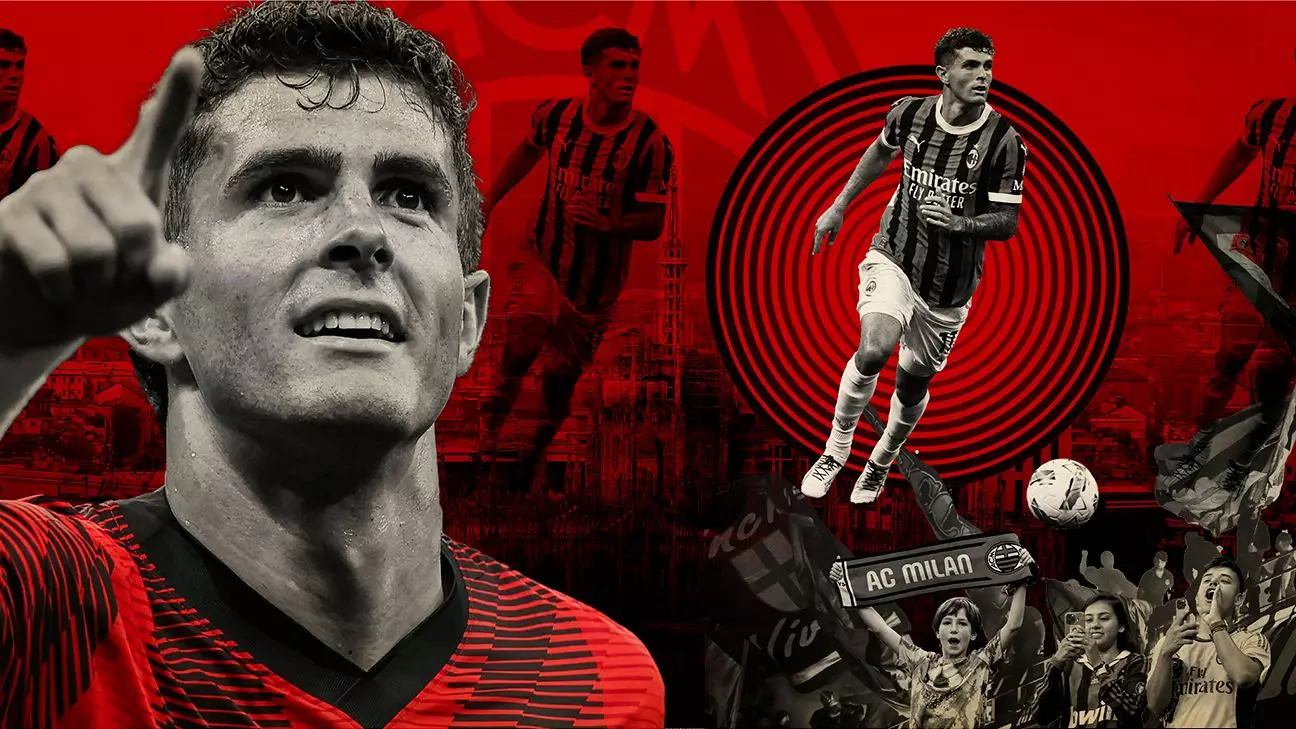Christian Pulisic is no stranger to high expectations, yet as he continues to navigate a convoluted path at AC Milan, it appears he is once again forced to prove his worth. Despite being the leading goal contributor for the Rossoneri with 12 goal contributions this season, Pulisic’s place within the team remains unsettlingly precarious. Following a series of tactical shifts and managerial changes, his potential is obscured by a system that, ironically, might not even fully appreciate his contributions.
Pulisic’s journey at AC Milan has been a rollercoaster of ups and downs. When he joined the team, expectations were sky-high, and many envisioned him as a critical asset for the Rossoneri. However, his current season paints a picture of a player constantly shifting positions and roles, which dilutes his effectiveness. Even despite his commendable goal contributions, being the first player substituted during a crucial Champions League match against Feyenoord, highlights a sobering reality: Pulisic is often the scapegoat in moments of team struggle.
Notably, last season, Pulisic was second only to Olivier Giroud in goal tally, a statistic that should ideally cement his status within the squad. Yet, his trajectory has been affected by coaching decisions that seem to favor the talents of others, such as Rafael Leão and João Félix. The decisions to frequently reposition Pulisic—either to the right wing or a more central role behind the striker—leave one wondering whether the club is fully harnessing his abilities.
The Managerial Conundrum
The managerial shifts within AC Milan have added layers of complexity to Pulisic’s situation. With the switch from Paulo Fonseca to Sérgio Conceição, many hoped that the new strategy would accentuate Pulisic’s qualities, particularly his ability to thrive in congested situations. Fonseca initially recognized Pulisic’s capabilities, prioritizing him in the No. 10 role—a decision that showcased his awareness and technical skills. Yet Conceição’s insistence on deploying Félix in that same position signifies a misunderstanding of Pulisic’s potential.
While Félix possesses undeniable talent, history suggests he has not proven to be consistently reliable. By shifting Pulisic back to a role of lesser synergy with his skills, the current management risks sidelining a player who, in the right position, could be integral to the team’s success. It begs the question: Why not build the squad around Pulisic’s strengths, particularly when his work ethic and versatility shine in moments of adversity?
Pulisic’s ability to adapt should be a testament to his professionalism, yet it’s a double-edged sword. While some view his flexibility as a virtue that enhances team dynamics, others argue that it hinders his individual performance. Critics might suggest that Pulisic is too accommodating—a factor that might dilute his star status on a team that needs a clear focal point in the attacking lineup.
There’s a prevailing narrative in sports that the most successful athletes often assert themselves, demanding roles that correspond with their talents and abilities. Pulisic’s selflessness has led him to take on various responsibilities, yet the question of whether it’s benefiting his career linger. Should he not assert his needs more passionately in order to maximize his performance and, in effect, those of his teammates?
As the season progresses, a larger thematic issue becomes apparent. Pulisic’s situation acts as a microcosm of the broader struggles within AC Milan’s tactical identity. The disparity in commitment and effectiveness between players like Pulisic, who showcases both offensive acumen and defensive diligence, versus those who may not reciprocate that effort, is striking. With players like Félix and Leão occasionally failing to contribute defensively, it raises questions about what qualities Milan values most.
Moving forward, the club must reevaluate its priorities in building a cohesive team that should revolve around the nuances of each player’s talent. Pulisic’s role as the leading contributor suggests he is deserving of a better-suited environment that recognizes and nurtures his unique abilities.
As Pulisic finds himself in the right place at the wrong time, the crux of his predicament lies in a coaching philosophy that appears misaligned with the needs of its key players. The ultimate challenge remains: How will AC Milan harness Pulisic’s talents more effectively as they navigate an uneven road ahead? The answer may define not just Pulisic’s future with the club, but AC Milan’s trajectory as a competitive force in European football.

